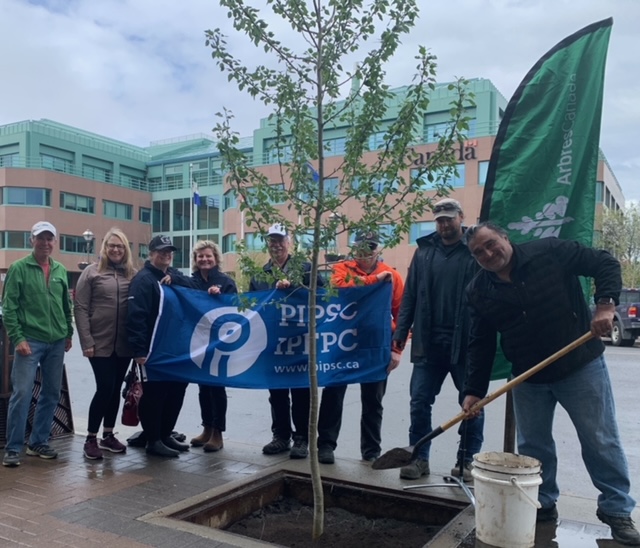Labour Day, the first Monday in September, has been an official holiday in Canada since 1894. The origin of Labour Day came 20 years before that, when unions started holding parades and rallies in Toronto and Ottawa to celebrate the 1872 Toronto printers’ strike – the original “fight for fairness” that won major changes including the decriminalization of unions in Canada.
Continue scrolling to read more!
Striking for a 9-hour workday
The Toronto Typographical Union (TTU) demanded a 9-hour workday from the city's publishers instead of the 12-hour, 6-day week. When employers refused, the printers walked out on March 25, 1872. On April 15, 1872, 10,000 supporters showed up for a rally at Queen's Park when the population of Toronto was only 50,000!
Globe publisher George Brown launched immediate legal action that resulted in the arrest of the strike committee for criminal conspiracy. Union activity was still illegal under Canadian law.
The people-powered domino effect
The Toronto parade inspired leaders in Ottawa to stage a similar event. A few months later, on September 3, 1872, 7 unions in Ottawa organized a parade more than a mile long, headed by an artillery band and flanked by city firefighters.
The parade passed the home of Sir John A. MacDonald, then prime minister of Canada. He promised to sweep away “such barbarous laws” as those invoked to imprison the TTU workers in Toronto.
Historic legislation
While the strike did not win the 9-hour day, just months ahead of a federal election, under mounting pressure from unions, MacDonald led the passage of the the Trade Union Act, which legalized and protected union activity in Canada.
The parades continued in support of the Nine Hour Movement and became annual events in such cities as Toronto and Ottawa.
American labour leader inspired by Canadian union parades
In 1882, an American labour leader, Peter McGuire, founder of the carpenters’ union and the American Federation of Labor, was invited to speak at a parade in Toronto. When he returned to the U.S., he organized a similar parade in New York City on September 5, 1882.
The popularity of the event spread rapidly. The first labour day events were held in Toronto (1882); Hamilton and Oshawa (1883); Montreal (1886); St Catharines (1887); Halifax (1888); Ottawa and Vancouver (1890); and London (1892).
Becoming an official holiday
U.S. President Grover Cleveland declared the first Monday of September as an official federal “labor” day holiday in 1894. Canada soon followed. Cleveland wanted to avoid May 1, which had been proclaimed the International Workers’ Day in Europe by unions and socialist parties, becoming the workers’ day also in the USA. May Day also commemorates the Haymarket riot in Chicago (1886).



 It is with a profound sense of sorrow and regret that the Institute informs you of the untimely passing of our friend and colleague Kal Sahota, BC/Yukon Regional Director. Kal’s commitment to PIPSC members was deep and unwavering. We will miss him very much.
It is with a profound sense of sorrow and regret that the Institute informs you of the untimely passing of our friend and colleague Kal Sahota, BC/Yukon Regional Director. Kal’s commitment to PIPSC members was deep and unwavering. We will miss him very much. 


 It is with great sadness that the Institute learned that Judith King passed away on December 4, 2021.
It is with great sadness that the Institute learned that Judith King passed away on December 4, 2021.